By Heather Graham
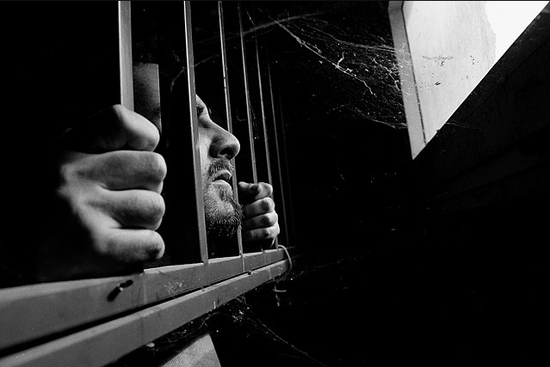 Image source: Flickr.
Image source: Flickr.
By Heather Graham
 Image source: Flickr.
Image source: Flickr.
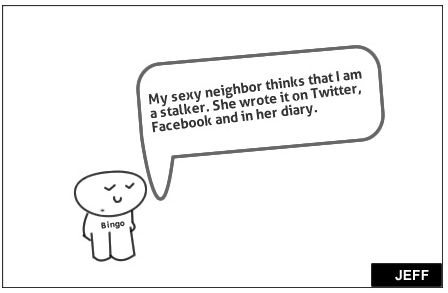
Image source: Flickr.
Your index finger rapidly depresses the left click button of the mouse as your brain attempts to keep up by processing the images flickering across the screen. You quickly look up to ensure that the door has been safely shut and that a quick escape from the site in question is possible at all times - you wouldn't want anyone 'catching' you doing this. No. This is not pornography in the traditional sense of the word, but the era of Facebook and social networking. "Facebook stalking," a term that has been around since its inception has now become part of the everyday lingo of adolescents. The fundamental nature of its purpose and layout, without modification, actively encourages behaviour labelled as 'stalking.' So why do people choose to associate the natural activities that Facebook encourages with 'stalker,' a word with all sorts of negative connotations in our society?
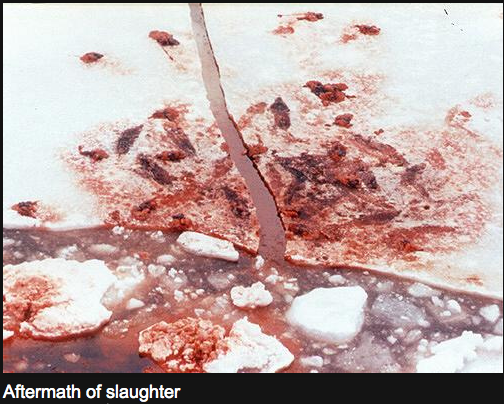
Image source: Flickr.
The eastern coast of Canada is a symbol of the beauty, vastness and cultural
integrity of our country. Canadians who live near fisheries in Eastern Canada
pride themselves in the preservation of their lakes and rivers. The earth and
oceans have been shaped by hard working Canadian hands that value and respect
the estuaries which support the economic backbone of settlements along the
Canadian coast. However with a decrease in animal population control,
particularly pertaining to the seal hunt, the fishing industry has taken a huge
loss in fish stocks due to the overpopulation of seals. The seal hunt itself
has become a Canadian symbol that challenges the connotations of the
preservation of Canadian wildlife, as well as the values of the people who live
along the eastern seaboard.
Although this issue is most vividly seen along the coast of Newfoundland and
Labrador, places farther west such as the Gaspe Coast are starting to feel the
pinch. For example, small towns such as Cascapedia St - Jules are one of many
pockets in Eastern Canada where fishing is a life line that brings vitality to
the community after the frozen winter months. During the Spring the town itself
becomes alive, flowing in total synchronic harmony with the river. As the ice
in the lakes and rivers thaw fishermen prepare their boats and canoes in
anxiety for the approaching fishing season. These Gaspesians respect the
dichotomy of give and take while working fluidly along side the river. By truly
living off the land, the river becomes the supporting vein of vitality that
allows Cascapedia St - Jules to function. Without the river and its salmon
pools, the town would become a desolate and barren mark left on the hide of the
Gaspe coast. However, with an increase in the Harp Seal population, seal packs
have shifted their habitat further west in order to find sufficient feeding
grounds. The result is a depletion of Salmon in rivers such as the Cascapedia.
This is a grim reality for a town that survives solely on Atlantic Salmon. But
the real challenge is in dealing with population control and the issues which
surround the connotations of the notorious seal hunt.
The Canadian seal hunt has become a popular protest site for animal rights activists
and on the other end of this protest there is a strong awareness of human
rights and well being in reference to employment, income and sustainability.
With this unstable dichotomy, the seal hunt has become a tension high issue
that represents Canada in the eyes of the world. The seal hunt has become
a wildfire the spreads across the Canadian North. It is shaped as a
chaotic cluster of emotion, beliefs and stances that spill out in the hearts of
protestors and fishermen alike. This fire that has been fueled by economic,
environmental and political, gestures has grown so out of control that the
chaos has become symbolic of the "great" Canadian north. Yet this symbol
reveals itself to the world as a blood sport thirsting for merciless barbaric
bludgeoning. The seal hunt depicts itself in the crimson stained snow like the
red that soaks into the white backdrop of our national flag.
The clashing dichotomy of give and take has spiraled into an almost superficial
falsehood, where celebrities such as the McCartney's and Pamela Anderson
exercise a demonstration which provokes a means to take away from Canadian
livelihood. The seal hunt has become a symbol that veils rural, natural and
traditional Canadian culture. When I stand on the shores of the Cascapedia
and watch seals parade up and down the current with salmon in their mouths it
is easy to realize just how much the seal hunt and animal population control is
really
destroying.
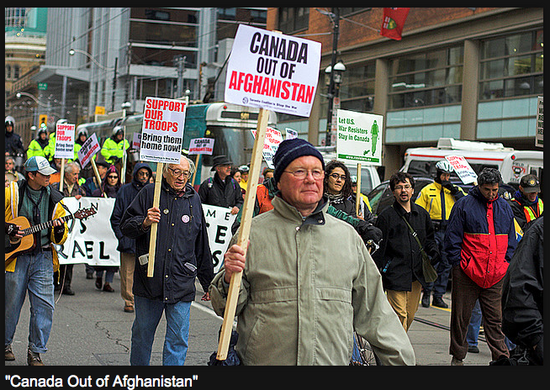
Image source: Flickr.
Last Saturday, on May 28th, 2011, Bombardier Karl Manning became the 156th Canadian soldier to die in Afghanistan and the second to be killed in 2011. He was found dead from non-combat related wounds and an enemy action had been ruled out. Accordingly, Minister of National Defense Peter MacKay released a statement of condolences as well as the following: "The Canadian Forces continue to make a positive difference in Afghanistan while protecting and promoting both Canadian and international security". What is this positive difference that MacKay is speaking of? And how are they protecting and promoting both Canadian and International security? This is an issue that has presented many concerns for Canadians and dominates much of their conversations. And if it is not dominating their conversations, then it should because it is their own government's credibility at stake and Canadians are the real investors in their government's operations in Afghanistan.
Canada's combined resources and expertise on the security, governance and development fronts are playing no small part in helping the Government of Afghanistan secure a supposed better future for its people. Canada has been unable to deliver the results it has promised and has provided more ground for people questioning Canada's presence there instead of answers and tangible results.
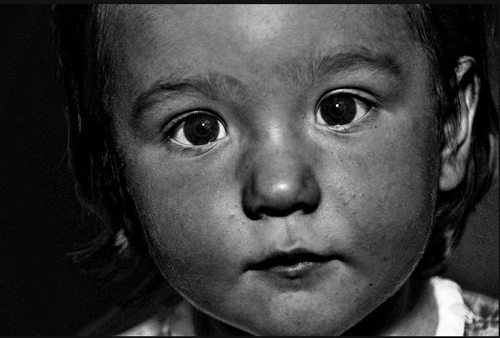
When I was a child, I remember asking my mom why - in some cases - children's pictures weren't published on the news or in newspapers. She'd simply reply that it was to conserve their innocence, to keep their identity protected from the rigid public world, and that there were laws to keep publishers from doing so. At that time I sincerely hoped my picture wouldn't end up in the Gazette, or elsewhere for that matter, since my innocence could have been at stake. I guess we can say that back then, innocence was just the right word to qualify my understanding of the issue.
Now, as a parent myself, my mom's voice and the conversation we once had has resurrected because of the emergence of a new self-publishing tool called Facebook. This virtual social network, seen as beneficial by some and diabolic by others, has steered my acquaintances and I through fiercely oppositional ethical deliberations. For my part, despite its communicational role creating a social fabric, I strongly believe that Facebook should not be used as a tool to expose children whatsoever because it violates the privacy rights of those without voice for the benefit of others who perhaps have narcissistic intentions.
In today's fast-lane society, virtual social networks as Facebook can ease the feasibility of maintaining relationships between family and friends regardless of time and distance. For instance, if a family decides - for any given reason, like a job opportunity - to establish itself abroad, Facebook will enable its members to effortlessly keep in touch with their relatives. By publishing pictures of themselves through the network in question, changes that kids go through as they grow up will not be missed by anyone. I mean, without the network, what are they supposed to do, write handwritten letters and send pictures every two weeks? But then again, this would be an isolated case and I guess it could be an undisputable reason for publishing pictures of your children on Facebook. However, complaisant people who relentlessly use this contractual tool should be informed that "facebooking" is not a private activity but is rather public. In other words, the saying "what goes on in the family, stays in the family" is not thoroughly applicable anymore.
When publishing pictures of your children on Facebook, you are literally robbing your children's choice to stay underground. In fact, as we can read directly from the Facebook website, new members must agree upon over one hundred different conditions and one of them reads as follows: "For content that is covered by intellectual property rights, like photos and videos ("IP content"), ... you grant us a non-exclusive, transferable, sub-licensable, royalty-free, worldwide license to use any IP content that you post on or in connection with Facebook."[1] In other words, when you sign-up to become a Facebook member, you must consent to the following criteria: primo, everything you publish becomes property of Facebook, and secondo, Facebook gains all rights to use all your published material in the way it intends to. Subsequently, this tends to shatter the argument, which stipulates that only your Facebook friends will have access to your publications. Ethically speaking, as parents and legal tutors, we must question our right to post pictures of our children on Facebook.
For my part, I choose to protect my two daughters' private identity and integrity by all means until they will have reached the age of reason. Now, some would think that these nebulous sign-up conditions stated above should definitely be repulsive enough to discourage any indulgent parent to pursue their quest of advertising their intimacy. But no, another reason explains why some people - who happen to be parents - decide to post pictures of their children on this social grid: narcissism. The public exposure of children on Facebook goes beyond the traditional family fabric where the parent-publishers mindlessly trade their kids' privacy for a self-centred goal. Indeed, according to research, facebooking can lead to incommensurable self-adoration. In a particular study targeting Canadian university students, researchers defined narcissism as follows: "... a pervasive pattern of grandiosity, need for admiration, and an exaggerated sense of self-importance."[2] Thus, the deemed narcissists, self-promoted, self-fulfilling, of grandiose love for oneself, in perpetual quest for higher self-esteem, and in brutal need of recognition will thereby use their children - by posting their pictures - as a means to meet their ends.
Ultimately, Facebook is a self-promoting tool, which can rob children of their innocence. Although its usefulness can be understood, I call upon parents and Facebook users to leave children out of this social network since too much is at stake. Once a private corporation owns your publications, who knows where your children's faces could end up? Isn't it crazy that, despite the fact that there are laws protecting our children's private identity, some parents purposely give their consent to go around them? Our children should undeniably be shielded by our parental responsibility to constantly and scrupulously act in their best interests. Taking risks contradicts this whole principle.
[1] https://www.facebook.com/terms.php
[2] http://www.theglobeandmail.com/news/technology/personal-tech/facebook-a-big-hit-with-narcissists-study/article1698694/
Recent Comments